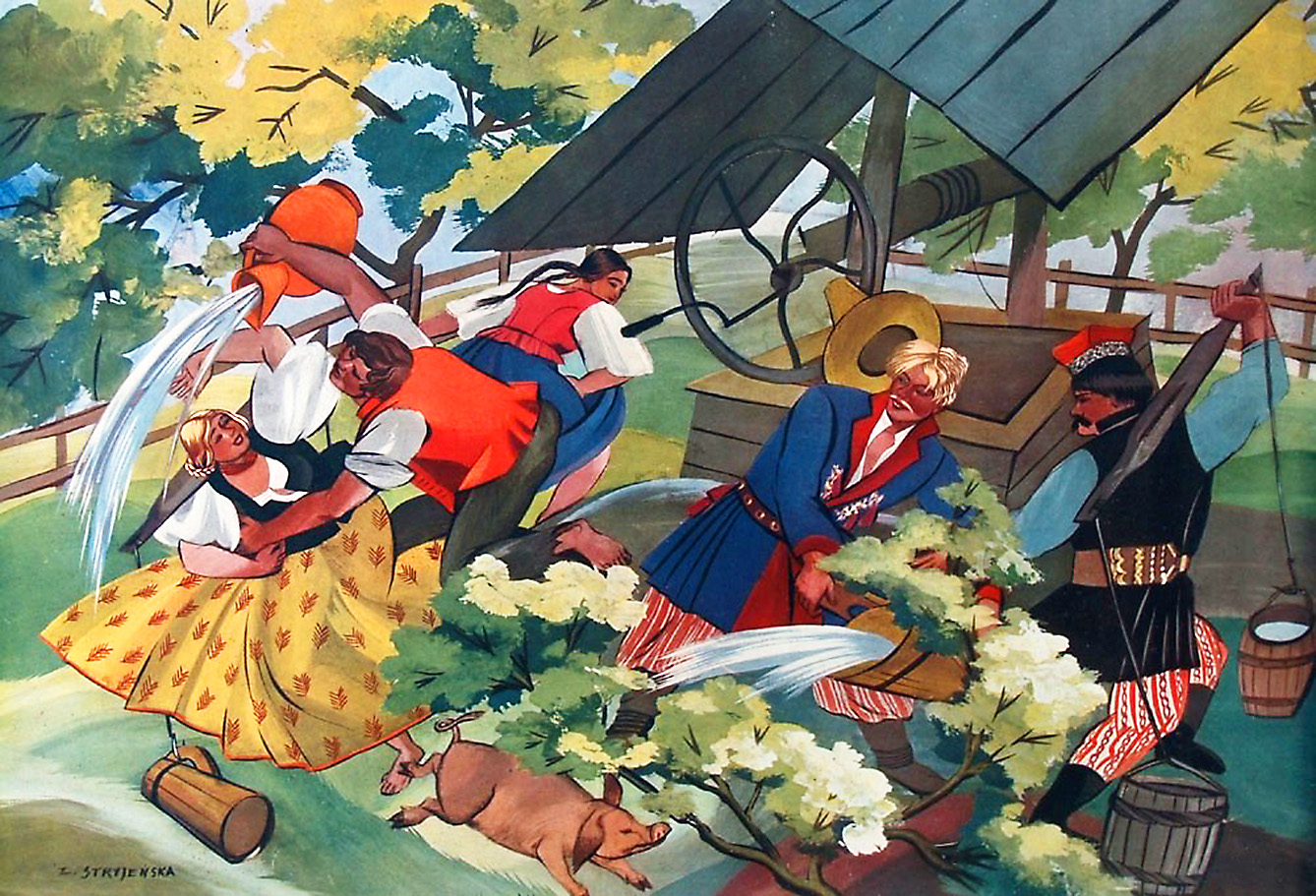As one-third of the world’s population observes Christianity in some form or other, it’s no surprise that the day after the Resurrection is still a part of the Easter holiday in over a hundred countries worldwide. In most countries, it’s a day of rest. However, that is not the case for young women in Central Europe, who spend the day dodging mischief from their fellow men.
Case in point: the Polish custom of ‘Śmigus Dyngus,’ or Wet Monday. The name can be taken quite literally, as it is a day when boys splash girls with water. In its contemporary, urban, and somewhat kinder form, the water comes from a spray bottle, water gun, or even a water-spraying toy egg manufactured especially for the occasion. However, some prefer to stay with the original, old-fashioned version, which involves splashing someone with a full bucket of cold water (though the violent aspects of being doused with a full bucket of cold water are often overlooked).
A tradition steeped in symbolism
Wet Monday is a tradition steeped in symbolism. Most obviously, water is a symbol of purity and an essential element of baptism. As such, it plays a central role in the idea of Easter, being Christ delivering people from original sin. (It also happens that it falls during the Easter Octave, right after Maundy Thursday, when the current vintage of holy water is blessed for the year to come.)
Secondly, Wet Monday in Poland is considered a courtship custom among young men and women. It’s supposed to be an occasion to socialize, especially for the men shy enough not to be able to talk to a girl but still audacious enough to splash her with water. In one variation of the custom, a girl can offer an egg to a boy to avoid being splashed, which could also count as a conversation starter.
However, famed Polish sexologist Michalina Wisłocka, had a different take. She once observed that the holiday had the erotic vibe of a rural Polish wet shirt contest. This stands in stark contrast with the generally puritanical standpoint of Polish Christianity. Another contrast is the potential pagan origins of the śmigus-dyngus custom, though the first known records where it is mentioned date to the 14th century, 500 years after Polish conversion to Christianity.
This Polish name for Wet Monday, ‘Śmigus dyngus,’ could have originated from two separate customs but is mostly believed to mean two aspects of the same: ‘śmigus’ after the vernacular word for chasing someone, and ‘dyngus’ derived from German ‘dingen,’ to pay off. But this option, i.e., symbolically compensating someone for not splashing you, is almost absent in today’s Poland. In fact, in some regions, Wet Monday is still observed as a water fight with unwilling passersby splashed with cold water. This is how tradition meets modernity.
If you are interested in more Easter trivia, then read the article about Easter European names.







